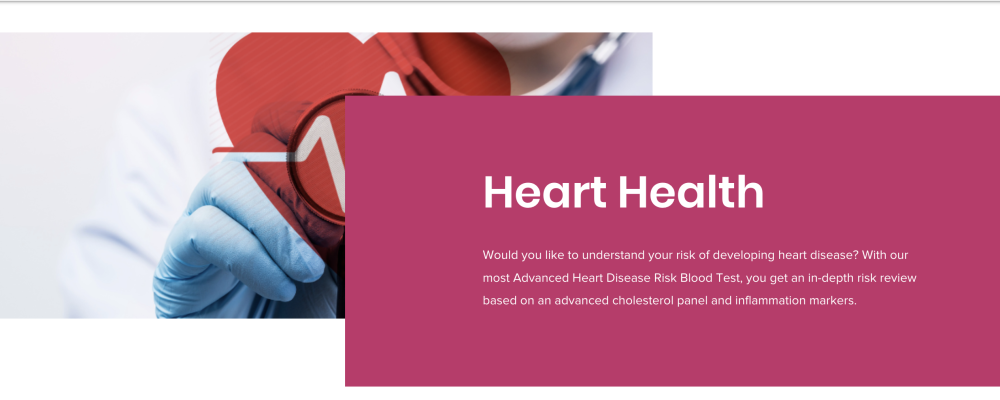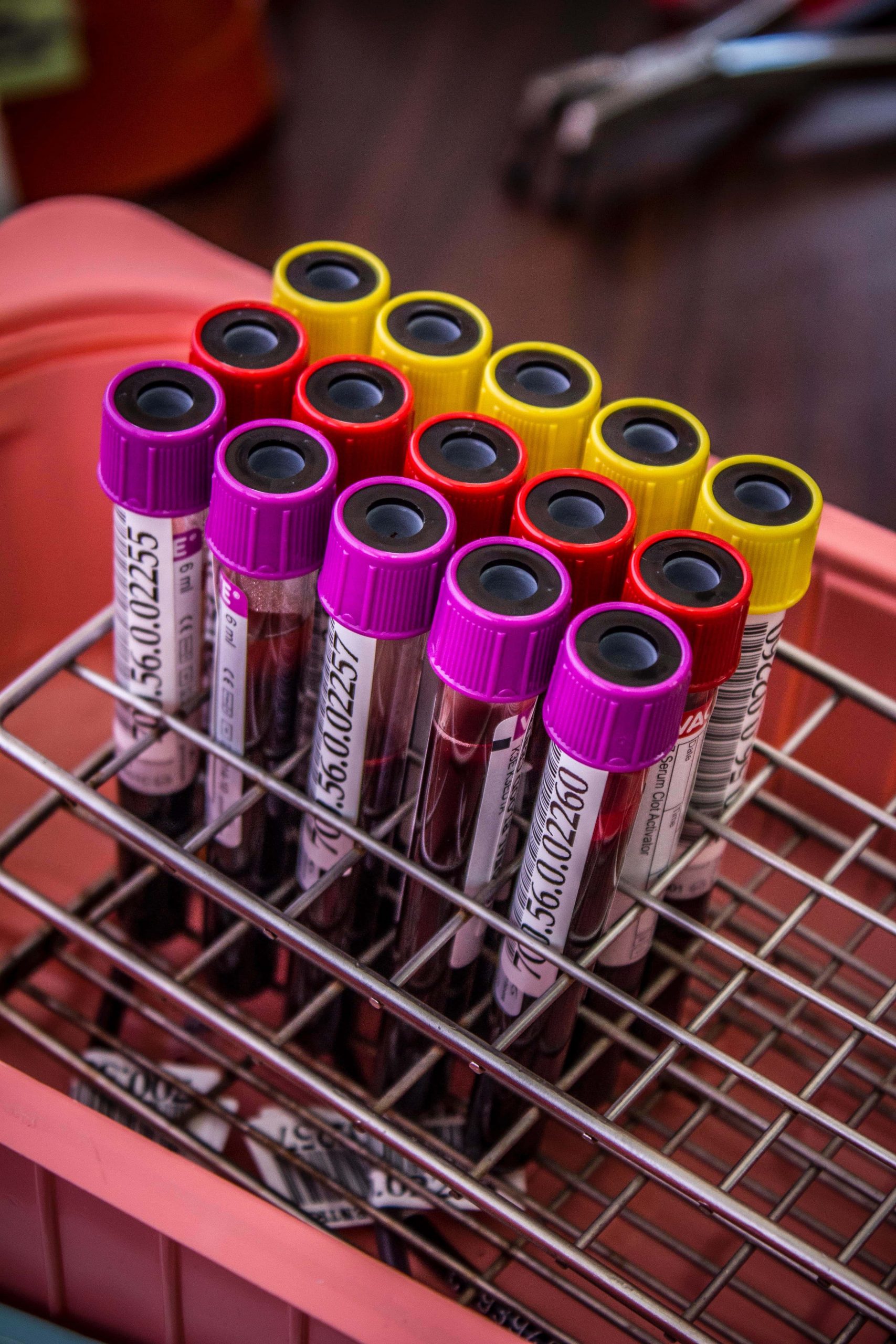

Heart Health will include the following:
Cholesterol
Detail: Cholesterol is a waxy substance that is produced by the liver and is also present in certain foods. It is an essential component of cell membranes and is used to produce hormones and vitamin D.
Symptoms: High levels of cholesterol in the blood can increase the risk of developing heart disease and stroke. However, there are typically no symptoms of high cholesterol, which is why it’s important to get it checked regularly.
Solutions: To lower cholesterol, it’s important to eat a healthy diet that is low in saturated and trans fats and high in fibre. Exercise regularly, maintain a healthy weight, and quit smoking. Medications may also be prescribed by a doctor in some cases.
LDL
Detail: LDL, or low-density lipoprotein, is often referred to as “bad” cholesterol. This is because high levels of LDL in the blood can contribute to the buildup of plaque in the arteries, increasing the risk of heart disease and stroke.
Symptoms: There are typically no symptoms of high LDL, which is why it’s important to get it checked regularly
.
Solutions: To lower LDL, it’s important to eat a healthy diet that is low in saturated and trans fats and high in fibre. Exercise regularly, maintain a healthy weight, and quit smoking. Medications may also be prescribed by a doctor in some cases.
HDL
Detail: HDL, or high-density lipoprotein, is often referred to as “good” cholesterol. This is because it helps remove LDL from the blood, reducing the risk of heart disease and stroke.
Symptoms: There are typically no symptoms of low HDL, which is why it’s important to get it checked regularly.
Solutions: To raise HDL, it’s important to eat a healthy diet that is low in saturated and trans fats and high in fibre. Exercise regularly, maintain a healthy weight, and quit smoking. Medications may also be prescribed by a doctor in some cases.
Triglycerides
Detail: Triglycerides are a type of fat that is found in the blood. They are stored in fat cells and are used for energy between meals.
Symptoms: High levels of triglycerides in the blood can increase the risk of developing heart disease and stroke. However, there are typically no symptoms of high triglycerides, which is why it’s important to get it checked regularly.
Solutions: To lower triglycerides, it’s important to eat a healthy diet that is low in sugar and refined carbohydrates and high in fibre. Exercise regularly, maintain a healthy weight, and quit smoking. A doctor may also prescribe medications in some cases.
Non-HDL
Detail: Non-HDL is a measure of all the types of cholesterol in the blood, except for HDL.
Symptoms: High levels of non-HDL in the blood can increase the risk of developing heart disease and stroke. However, there are typically no symptoms of high non-HDL, which is why it’s important to get it checked regularly.
Solutions: To lower non-HDL, it’s important to eat a healthy diet that is low in saturated and trans fats and high in fibre. Exercise regularly, maintain a healthy weight, and quit smoking. Medications may also be prescribed by a doctor in some cases.
VLDL
Detail: VLDL, or very low-density lipoprotein, is a type of lipoprotein that is produced by the liver. It contains a high amount of triglycerides and contributes to the buildup of plaque in the arteries.
Symptoms: There are typically no symptoms of high VLDL, which is why it’s important to get it checked regularly.
Solutions: To lower VLDL, it’s important to eat a healthy diet that is low in sugar and refined carbohydrates and high in fibre. Exercise regularly, maintain a healthy weight, and quit smoking. Medications may also be prescribed by a doctor in some cases. It’s also important to manage any underlying conditions, such as diabetes or hypothyroidism, which can contribute to high VLDL levels.

Getting blood tests done at MACS clinic is the best choice for accurate, comprehensive and expertly interpreted results. Unlike at-home kits our medical professionals are trained to handle blood samples properly, ensuring accurate results. With same-day appointments and fast results, MACS clinic offer the ultimate convenience. Plus, we have access to a wider range of tests, giving patients a more complete picture of their health. Choose the reliability and expertise of MACS clinic today and get peace of mind knowing your health is in good hands!


The turnaround time for test results can vary depending on the specific test being conducted. However, we strive to deliver results as quickly as possible. Most routine blood tests are typically processed within 24 to 48 hours.
No, you do not need a doctor’s referral to get tested at MACS Diagnostics. We welcome both self-referred individuals and those referred by healthcare professionals. However, we recommend consulting with your healthcare provider for appropriate test selection and interpretation.
MACS Diagnostics accepts a wide range of insurance plans. However, coverage may vary depending on your specific insurance policy. We encourage you to contact your insurance provider to understand your coverage and any potential out-of-pocket expenses.
Scheduling an appointment with MACS Diagnostics is easy. Use our online form after selecting any of our tests, pick a date and you will receive the information needed.
At MACS Diagnostics, we prioritise accuracy and precision in all our tests. Our laboratory utilises state-of-the-art equipment and follows stringent quality control measures to ensure reliable results with a high level of accuracy.
MACS Diagnostics provides a wide range of blood diagnostics services, including comprehensive blood tests, infectious disease screenings, genetic testing, hormonal assessments, and specialised tests for specific medical conditions.
Rarely, some people feel faint during a blood test. Tell the person doing the test if you feel faint, as you should immediately lie down to prevent fainting
This depends on the sort of tests you are having done. Many tests can be done on the same sample of blood, so you do not need to have a single bottle for each one: The bottles do not necessarily have to be completely filled either.
• The vein used for blood sampling is usually on the inside of your elbow or the back of your wrist.
• A tight band (tourniquet) is usually placed around your upper arm. This makes the vein fill with blood and makes it easier for the blood sample to be taken.
• The skin over the vein may be cleaned with an antiseptic wipe.
• A needle is then inserted into the vein through the clean skin, causing a sharp pricking sensation. The needle is connected either to a syringe, or directly to blood sample bottles.
• The tourniquet is undone. When the required amount of blood is taken, the needle is removed. The small wound is pressed on with cotton wool for a few minutes to stop the bleeding and prevent bruising. A sticking plaster may be put on. The blood is placed in bottles. There may be a slight ache following a blood test.
Free video/face to face consultation
with consultant plastic surgeon
Please fill in your details and we will get back to you.